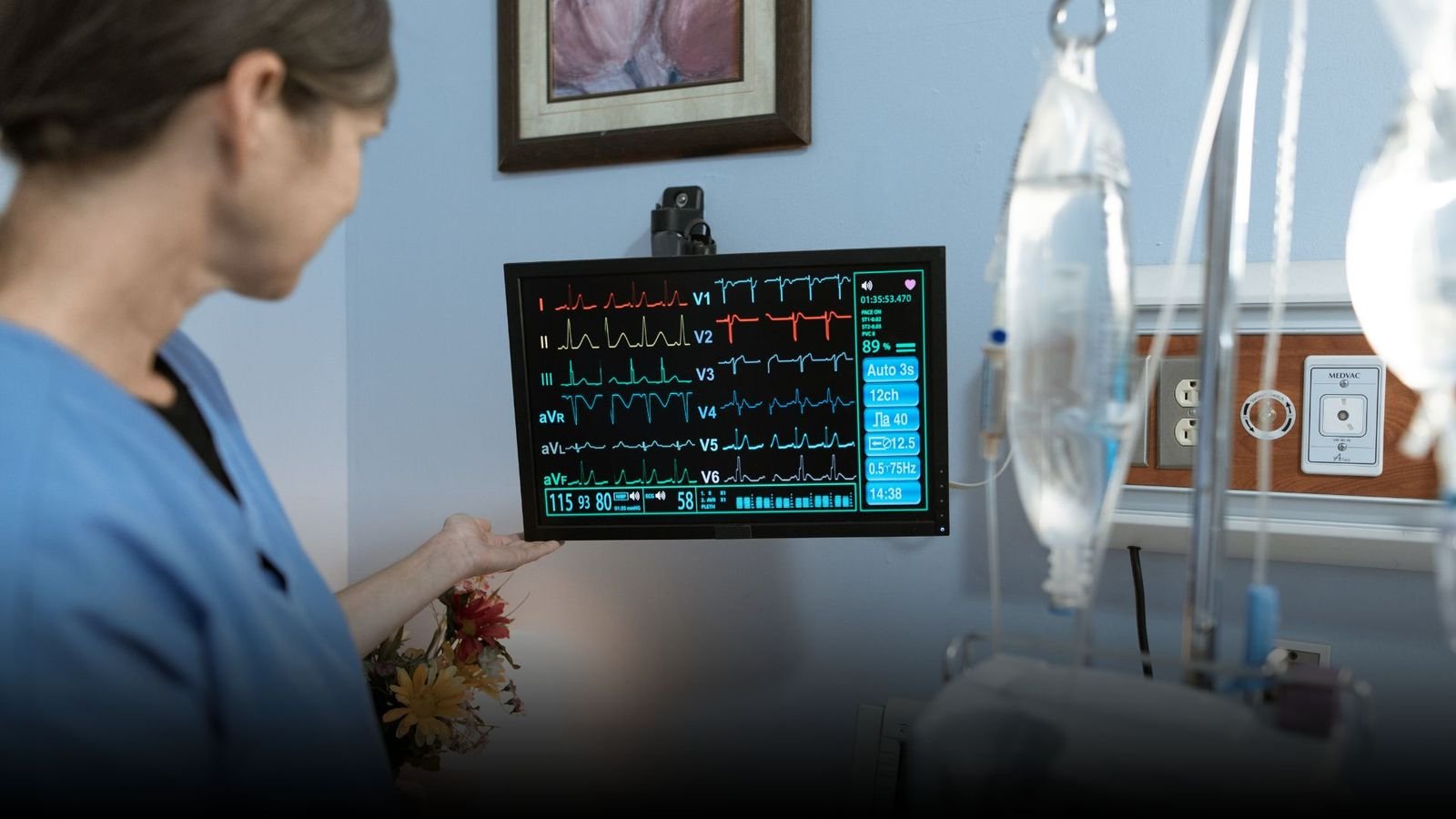
The Role of Standards of Care in Medical Malpractice Cases
In medical malpractice litigation, the standard of care is the foundation on which liability is built—or defended. Understanding whether a provider deviated from accepted medical practices is critical to proving negligence. In this blog, we explore how Legal Nurse Consultants at Lexcura Summit help attorneys interpret standards of care, assess clinical decision-making, and support stronger expert testimony in malpractice cases.

Identifying Delayed Diagnosis Cases Using Timeline Analysis
Delayed diagnoses can have devastating consequences—and the timeline tells the story. In this blog, we explore how Legal Nurse Consultants at Lexcura Summit use timeline analysis to uncover missed opportunities, delayed interventions, and critical gaps in care. Learn how structured medical chronologies help attorneys identify liability, strengthen causation arguments, and build more effective delayed diagnosis cases.

What Traumatic Brain Injury (TBI) Cases Require from a Medical-Legal Standpoint
Traumatic Brain Injury (TBI) cases are some of the most complex and high-stakes in personal injury litigation. They demand meticulous documentation, expert clinical interpretation, and a deep understanding of long-term outcomes. In this blog, we explore what TBI cases require from a medical-legal standpoint—and how Lexcura Summit’s Legal Nurse Consultants support attorneys with medical chronologies, red flag identification, and evidence that clearly demonstrates causation and impact.

Understanding Pressure Ulcer Staging and Its Legal Significance
Pressure ulcers—also known as bedsores—are more than clinical diagnoses; they’re potential red flags for neglect and substandard care. In this blog, we break down the stages of pressure ulcers, what they indicate about the quality of care, and how their documentation (or lack thereof) can significantly impact personal injury, malpractice, or nursing home abuse cases. Learn how Lexcura Summit’s Legal Nurse Consultants help attorneys interpret pressure ulcer findings and strengthen their case strategy.

Decoding Complex Surgery Cases: Legal Nurse Consultant Tips for Better Case Review
Surgical cases often involve high-risk procedures, multiple providers, and dense documentation. Without clinical insight, key details can be missed. In this blog, we share tips from Lexcura Summit’s Legal Nurse Consultants on how to effectively review complex surgery cases—spotting red flags, clarifying surgical timelines, and identifying breaches in standard of care to support a stronger legal strategy.

The Role of Legal Nurse Consultants in Preparing for Depositions and Trial
Depositions and trial testimony are high-stakes moments in any medical-legal case. Legal Nurse Consultants (LNCs) play a vital role in preparing attorneys and witnesses by reviewing medical records, identifying inconsistencies, clarifying terminology, and helping develop focused questions. In this blog, we explore how Lexcura Summit’s LNCs support strong courtroom strategy through expert insight and meticulous case preparation.

Using Medical Experts vs. Legal Nurse Consultants: What’s the Difference?
Medical Experts and Legal Nurse Consultants (LNCs) both bring clinical insight to legal cases—but their roles, timing, and impact are very different. In this blog, we break down the key distinctions between expert witnesses and LNCs, including when to use each, how they contribute to case development, and how Lexcura Summit helps attorneys leverage both to maximize results.

Why Gaps in Medical Care Matter in Personal Injury Litigation
In personal injury cases, gaps in medical treatment can significantly impact both liability and damages. Whether caused by delayed follow-up, inconsistent care, or lapses in documentation, these gaps can weaken causation arguments and reduce case value. In this blog, we explore why medical care continuity is essential—and how Lexcura Summit’s Legal Nurse Consultants help attorneys identify, explain, and strategically address these critical breaks in care.

How Early Legal Nurse Consultant (LNC) Involvement Strengthens Case Strategy and Valuation
Involving a Legal Nurse Consultant early in a case can dramatically improve both strategy and settlement value. From identifying red flags in medical records to clarifying timelines and standard-of-care breaches, early LNC input helps attorneys shape stronger arguments from day one. In this blog, we explore how Lexcura Summit’s consultants help law firms streamline discovery, avoid costly delays, and increase case impact through proactive medical-legal collaboration.

Common Red Flags in Nursing Home Charts That Indicate Neglect
Nursing home records can reveal more than just clinical care—they often contain warning signs of neglect. In this blog, we outline the most common red flags found in nursing home charts, from inconsistent documentation and unexplained injuries to missed medications and sudden health declines. Learn how Legal Nurse Consultants at Lexcura Summit identify these red flags and help attorneys build stronger elder abuse and neglect cases.

Building a Winning Case with Medical Chronologies: A Step-by-Step Guide
Medical chronologies are more than just timelines—they’re strategic tools that clarify events, support causation, and drive successful litigation. In this step-by-step guide, we walk attorneys through how to use medical chronologies effectively, from organizing raw records to leveraging expert analysis. Learn how Lexcura Summit’s legal nurse consultants help turn complex clinical data into compelling legal narratives.

How to Spot Fabricated or Altered Medical Records in Legal Cases
Altered or fabricated medical records can derail a case, mislead a jury, or conceal critical evidence. In this blog, we outline the key warning signs of tampered documentation—from inconsistent timestamps and vague entries to suspicious revisions and missing pages. Learn how Legal Nurse Consultants at Lexcura Summit detect record irregularities and support attorneys in uncovering the truth behind the charts.

What Attorneys Miss in Medical Records—And How Legal Nurse Consultants Fill the Gaps
Medical records are rich with critical details—but without clinical training, key insights often go unnoticed. In this blog, we explore the most common gaps attorneys miss when reviewing medical documentation, and how Legal Nurse Consultants (LNCs) bridge those gaps. From identifying inconsistencies and omissions to clarifying terminology and timelines, Lexcura Summit’s LNCs turn complex data into clear legal strategy.

Protecting Yourself from Malpractice: Documentation Best Practices for Healthcare Providers
Accurate, timely, and objective documentation is one of the most powerful defenses against medical malpractice claims. In this blog, we outline essential documentation best practices every healthcare provider should follow—from charting red flags and clinical rationale to avoiding vague language and late entries. Learn how clear medical records not only improve patient care but also protect you in the event of legal scrutiny.

How Legal Nurse Consultants Support Attorneys in Medical Cases
When legal cases involve complex medical records, terminology, and treatment timelines, Legal Nurse Consultants (LNCs) become essential allies. In this blog, we explore the many ways LNCs support attorneys—from analyzing records and identifying red flags to preparing expert witnesses and clarifying standards of care. Discover how Lexcura Summit’s legal nurse consultants help turn clinical complexity into legal clarity.

Navigating the Road to Resolution: How Long Does a Personal Injury, Wrongful Death, or Medical Malpractice Case Take?
One of the most common questions clients ask is: "How long will this take?" The answer depends on case type, complexity, available evidence, and medical review. In this blog, we break down the average timelines for personal injury, wrongful death, and medical malpractice cases—and explain how expert medical-legal consulting from Lexcura Summit can help streamline discovery, clarify medical facts, and move your case forward with confidence.

How Legal Nurse Consultants Bridge the Gap Between Medicine and Law
Legal Nurse Consultants (LNCs) serve as the vital link between complex medical data and effective legal strategy. With clinical expertise and litigation insight, LNCs translate medical records into actionable evidence, clarify standards of care, and support attorneys through case development, discovery, and trial. In this blog, we explore how LNCs at Lexcura Summit help bridge the communication gap between two highly specialized worlds—medicine and law.

The Impact of Legal Nurse Consultants on Legal Proceedings and Verdicts
Legal Nurse Consultants (LNCs) play a pivotal role in shaping the outcome of medically complex cases. From uncovering critical details in medical records to supporting expert witness preparation and deposition strategy, their contributions can significantly influence both the direction and success of a case. In this blog, we explore how LNCs impact legal proceedings, strengthen arguments, and help secure favorable verdicts.

Outsourcing Medical Chronology for Attorneys: Pros, Cons & Key Insights
Outsourcing medical chronology services can save attorneys valuable time and enhance case accuracy—but it also comes with considerations. In this blog, we explore the pros and cons of outsourcing, how to choose the right partner, and what to watch out for when it comes to quality, turnaround time, and HIPAA compliance. Learn how Lexcura Summit ensures precision, speed, and strategic value with every chronology we deliver.

How to Collaborate Effectively with Legal Nurse Consultants (LNCs)
Legal Nurse Consultants bring critical medical insight to the legal process—but their value is maximized when collaboration is clear and strategic. In this blog, we explore best practices for working with LNCs, from setting expectations and defining case goals to leveraging their expertise in medical record review, deposition preparation, and trial support. Learn how attorneys and LNCs can form a seamless partnership that drives stronger outcomes.
